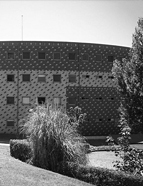

in addition, there is the «violon d'Ingres» of the Historiography and University Institution of our 20th century, the coordination (with M. Helena da Cruz Coelho) of vol. III (1096-1325) of the Nova História de Portugal [New History of Portugal], Joel Serrão (1919-1908) and A. H. de Oliveira Marques (in publication since 1987) and the scientific revision of the Portuguese translation (1989-1991) of the História da Vida Privada [History of Private Life], dir. Philippe Ariès (1914-1984) and Georges Duby. Another of Baquero Moreno's disciples is undoubtedly Luís Miguel Duarte (b. 1956), with a long-standing interest in crime, royal justice, punishment and pardon, which are addressed, in a dense - albeit almost in-sequent - doctoral thesis defended in 1994 (and published five years later), among other works, where the conceptual and methodological influence of Claude Gauvard and António M. Hespanha is evident. L. M. Duarte, also interested in the municipal powers and in the publication of the respective Minutes (Porto, Loulé), has recently turned his attention to a rediscovery of the economic history of the late Middle Ages: prices, standards of living and urban labour, for example, are subjects related to his work and supervision of various PhD students. He is also responsible for a biography of King Duarte, in a collection published by the Círculo de Leitores and Temas e Debates, to which repeated reference will be made.
As for Luís Adão da Fonseca, who was awarded his PhD in Navarre in 1975 - and taught there until 1981 - with a thesis on Peter, Constable of Portugal, he worked during this period on the Portuguese naval presence in the Mediterranean, addressing the problems of piracy and buccaneering, among others. His return to Porto in 1981 - and his attainment of the chair in 1984 - would gear the bulk of his postgraduate teaching towards the Religious-Military Orders of the Portuguese Late Middle Ages and sixteenth century; Among the disciples he trained, the most notable were Paula Pinto Costa (b. 1966) - scholar of the Knights Hospitaller and today one of the School's professors - and Maria Cristina Pimenta (b. 1961) - scholar of the Avis and Santiago Orders. She wrote the biographies of Gama, Cabral and King John II (the latter in the aforementioned collection), as well as studies and source editions on the treaties of Windsor and Tordesillas.
